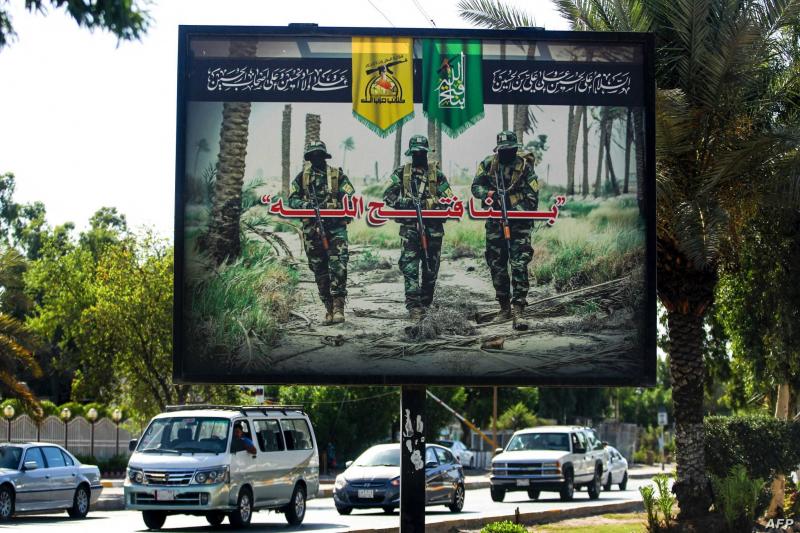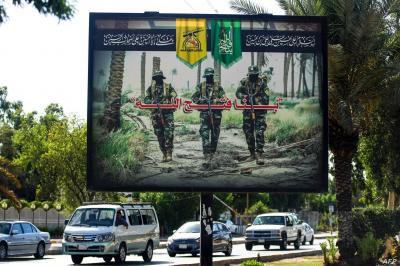The Gaza war has provided Iran an opportunity to showcase the capabilities of its network in the region, demonstrating Tehran's strategic influence while allowing it to maintain distance from the fighting, according to group members and military analysts. According to the American newspaper "The Washington Post," "since Hamas's attack on Israel on October 7, one of the groups has conducted an attack somewhere in the Middle East, with multiple attacks on different days." The Houthis in Yemen target ships in the Red Sea, while Hezbollah and other Iraqi groups strike American bases in Iraq and Syria. Hezbollah engages in daily clashes with Israeli forces across the Lebanese-Israeli border. While the attacks may seem random, they result from a carefully calculated strategy developed following the assassination of Qassem Soleimani, the commander of Iran's Quds Force, in 2020, aimed at achieving cohesion within the loosely defined alliance known as the "Resistance Axis."
The newspaper continued, "although the groups appear disconnected from one another, they all share one thing: their loyalty to Iran, forming, alongside Hamas, the core components of the 'Resistance Axis.'" Joseph Votel, the former commander of U.S. Central Command who oversaw American forces in the region when Soleimani was killed in a drone strike in Baghdad, stated, "What these various elements have done demonstrates the strength of the network of proxies that Iran has established throughout the region and the degree of concern it represents."
Officials linked to the main groups reported that no single group controls the region, with each having a degree of independence regarding which attacks to carry out in their area and when, based on their capabilities and local agendas. The newspaper added, "The Houthis have taken on the task of attacking ships, aiming to pressure the international community to urge Israel to adopt a ceasefire in Gaza. Meanwhile, Iraqi groups target U.S. bases in response to the Biden administration's support for Israel, while Hezbollah fires at Israel to distract its forces from the Gaza front." At the same time, group officials stated that all actions are calibrated to avoid a broader regional war, suggesting that while groups enjoy autonomy in individual operations, their actions are designed not to conflict with Iran's strategic objectives.
According to the newspaper, "a Hezbollah official, the largest Iraqi group conducting the attacks, said: 'We discuss updates and progress on all fronts during our meetings and how each front benefits strategically.'" The official, like others, spoke on condition of anonymity to discuss internal deliberations. Iran provides all types of support, but when it comes to decisions and actions on the ground, the choice lies with them. Officials claim that Hezbollah's Secretary-General Hassan Nasrallah has played a leading role in strengthening the alliance, being the most prominent figure leading the oldest, most successful, and resilient group in combat.
The newspaper observed that "Soleimani's killing left the leadership of the axis in disarray. As the commander of the Islamic Revolutionary Guard Corps' international wing, Soleimani almost single-handedly bolstered the groups and achieved a legendary status far beyond his formal rank. Following Soleimani's death, rivalries broke out, particularly among Iraqi groups, whose commander, Abu Mahdi al-Muhandis, was killed in the same strike that killed Soleimani. Nasrallah intervened to mediate and began implementing a new strategy called 'front unity,' in which all groups pledged to act in their areas if any of them were attacked. The Gaza war was the first time this strategy was put into action."
According to the newspaper, "the Hezbollah official said: 'We consider Hassan Nasrallah the spokesperson for the resistance, one of its core pillars and its most important symbols.' They added: 'He is respected and appreciated by all Iraqi factions, and we consider him a shield for all of us.'" Hamid Reza Azizi, a former professor of regional studies at Shahid Beheshti University in Tehran and now a visiting fellow at the German Institute for International and Security Affairs, stated that the extent of Iran's role in directing the overall strategy is "a million-dollar question." He added, "In other words, Iran stands behind these activities and does not stand behind them." One Iranian Revolutionary Guard official attends most of the joint operation meetings, according to a person linked to Hezbollah and familiar with the procedures. However, Nasr al-Din Amir, the spokesman for the Houthis in Sanaa, who heads the Saba news agency, claimed that Iran is represented only as "one of many," without playing a leading role.
The newspaper continued, "This strategy appears to be working well from Iran's perspective. Azizi stated that Iran has managed to assert its regional influence through sporadic attacks, without igniting a major fire that could endanger its allied groups and potentially draw Iran directly into combat. Whether this strategy will continue to work in Iran's favor is questionable, as Israel expresses increasing anger over Hezbollah's attacks along its northern border."
The newspaper concluded, "Direct war would throw Iran's strategy into chaos, but group officials say they are confident that their attacks provide sufficient deterrence for both Israel and the United States without escalating beyond the current level of conflict."




